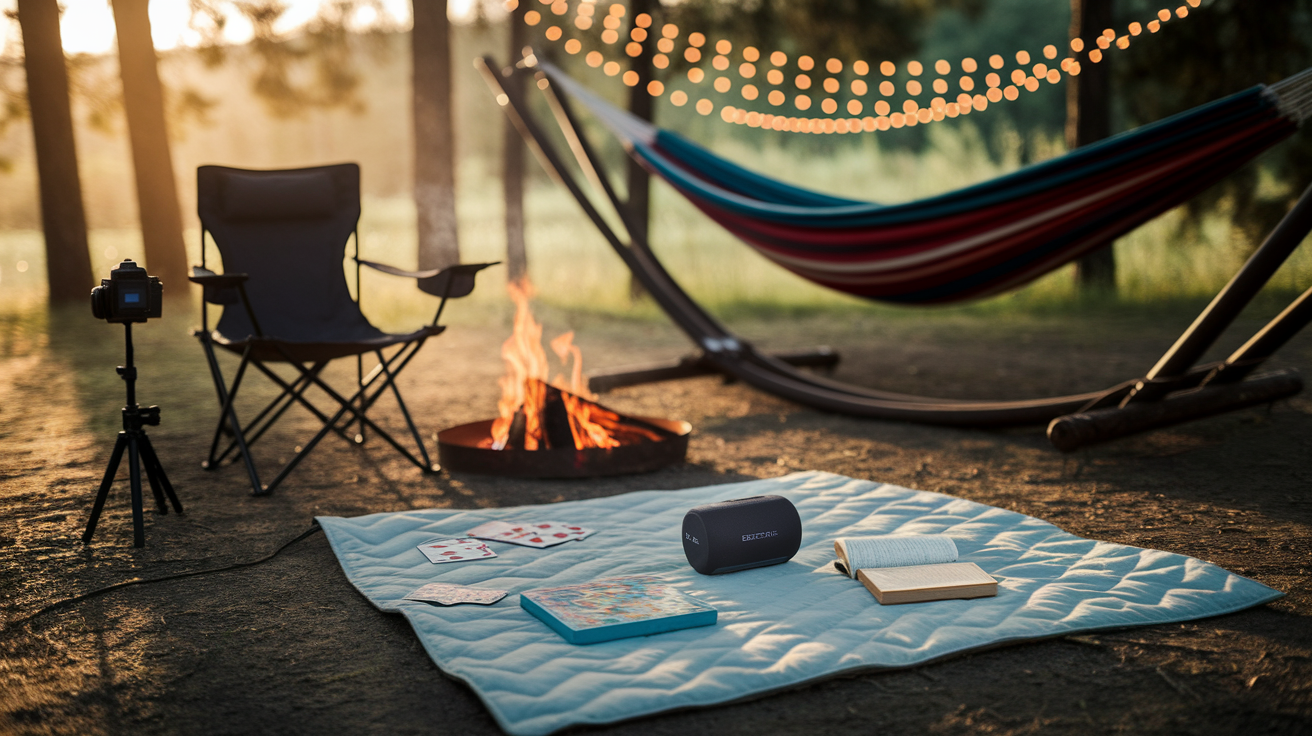The Ultimate Summer Camping Packing List – Essentials for a Stress-Free Adventure
Summer camping is the perfect way to escape the daily grind, reconnect with nature, and enjoy warm days and starry nights. But a great trip starts with smart packing—bringing the right gear while avoiding unnecessary clutter.
Whether you’re a seasoned camper or heading out for your first adventure, having a well-organized packing list ensures comfort, safety, and a stress-free experience.
This guide covers essential gear, clothing recommendations, what not to bring, and helpful packing tips to make your trip enjoyable. With the right preparation, you can focus on making unforgettable memories in the great outdoors. Let’s get packing!
Camping Essentials (Must-Have Gear)
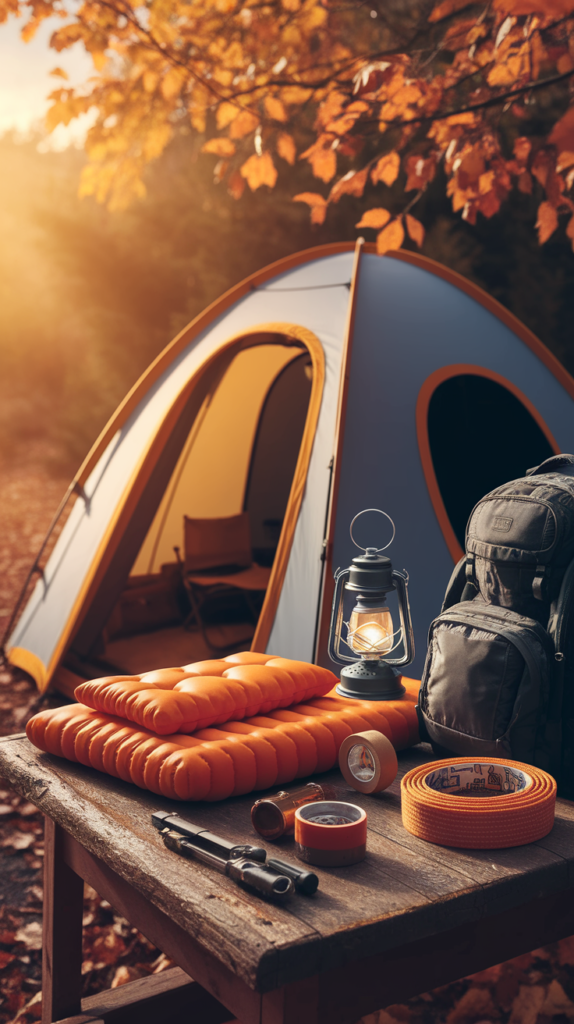
Packing the right gear ensures a comfortable and safe camping experience. Start with a high-quality tent that suits the number of campers, along with sturdy tent stakes and a ground tarp to protect against moisture.
A sleeping bag rated for summer temperatures, paired with a sleeping pad or inflatable mattress, will provide comfort and insulation from the ground.
A durable backpack or duffel bag helps keep gear organized and easy to carry. Bring a multi-tool for quick fixes and a roll of duct tape for emergency repairs. Lighting is crucial—pack a headlamp, flashlight, or lantern with extra batteries for nighttime visibility.
Other essentials include a folding camping chair for relaxation, a rope or paracord for hanging gear, and fire-starting supplies like waterproof matches, a lighter, or a fire starter. With these must-haves, you’ll be well-prepared for a smooth and enjoyable camping trip.
Cooking & Food Supplies
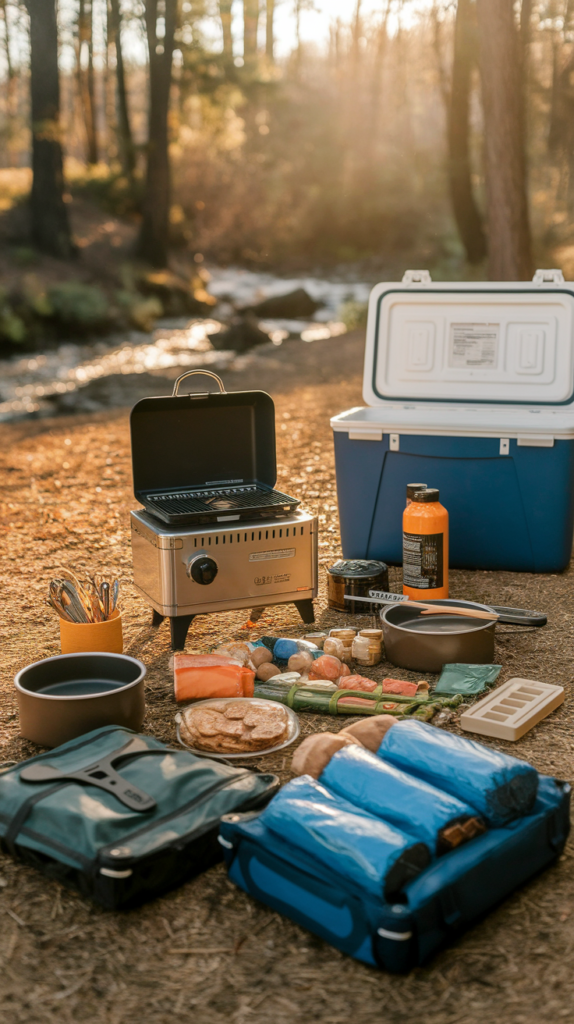
A well-planned camping kitchen makes meal prep easy and enjoyable. Start with a portable camping stove or a compact grill, along with a fuel canister or firewood (if fires are allowed).
Bring lightweight cookware, including a pot, pan, spatula, and tongs, plus heat-resistant gloves for safety. A cutting board and knife are essential for meal prep, while collapsible bowls and plates save space.
Pack non-perishable, easy-to-cook foods like dehydrated meals, pasta, canned goods, trail mix, and protein bars. If bringing perishables, store them in a cooler with ice packs. Don’t forget reusable utensils, cups, and a bottle opener.
Water is a priority—bring plenty of drinking water or a water filtration system if refilling from natural sources. For cleanup, pack biodegradable soap, a sponge, and a quick-dry towel.
Proper food storage, like bear-proof containers or hanging food bags, helps keep wildlife at bay.
Clothing & Dress Code
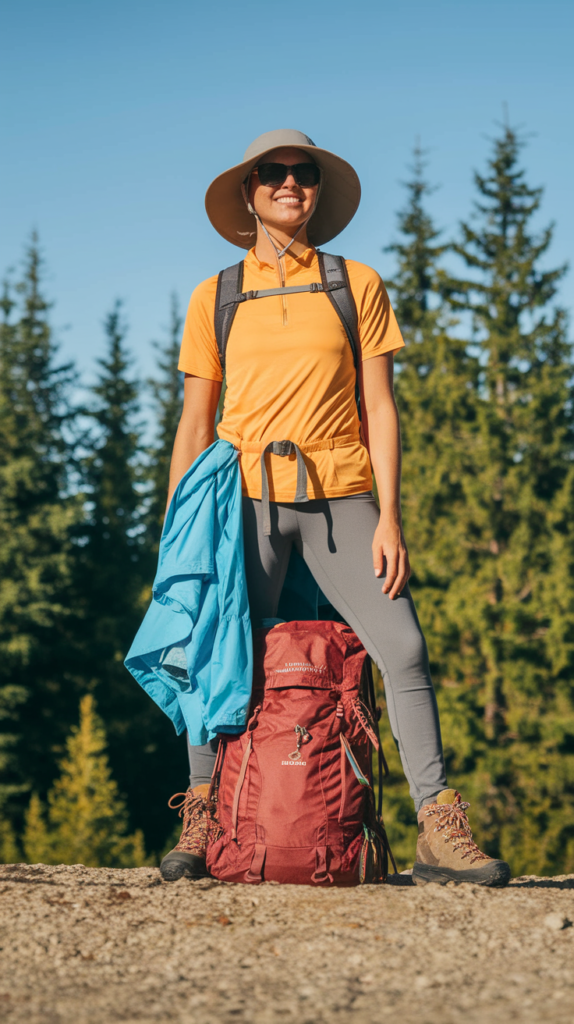
Dressing appropriately for summer camping ensures comfort, protection, and adaptability to changing weather. Lightweight, moisture-wicking fabrics like polyester or merino wool are ideal for keeping cool and dry.
Avoid cotton—it absorbs sweat and takes longer to dry. Breathable shirts and convertible pants provide flexibility, while shorts are great for hot days.
Layers are key. Even in summer, temperatures can drop at night, so pack a light fleece or insulated jacket. A waterproof jacket or poncho is essential for unexpected rain. Sun protection is crucial—wear a wide-brimmed hat, sunglasses, and UPF-rated long-sleeve shirts.
For footwear, choose sturdy hiking boots or trail shoes for long walks and comfortable sandals for lounging at camp. Bring moisture-wicking socks to prevent blisters.
Pack a swimsuit if you’ll be near water and a bandana or buff for added sun and dust protection. Dressing smartly ensures you stay comfortable and prepared for any adventure.
Safety & First Aid
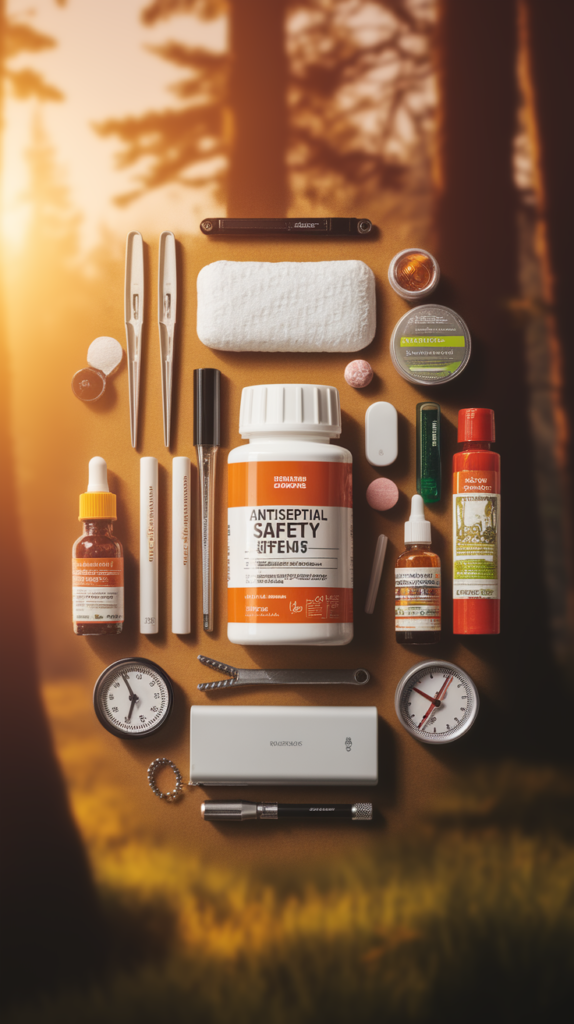
Staying safe while camping requires proper preparation, and a well-stocked first aid kit is a must. Include bandages, antiseptic wipes, adhesive tape, tweezers, pain relievers, antihistamines, and personal medications.
A small emergency blanket can provide warmth in unexpected situations.
Sun protection is crucial—pack sunscreen (SPF 30+), lip balm with SPF, and sunglasses to prevent sunburn and dehydration. Insect repellent with DEET or natural alternatives like citronella helps keep bugs away.
For navigation, bring a compass, map, or GPS device, even if you plan to use your phone—signal loss is common in remote areas. A fully charged power bank ensures backup power.
If camping in bear country, carry bear spray and store food in bear-proof containers or hung from a tree. A whistle and a signal mirror can be lifesaving in emergencies.
By preparing for safety risks, you’ll have peace of mind and enjoy a stress-free adventure.
Hygiene & Personal Care
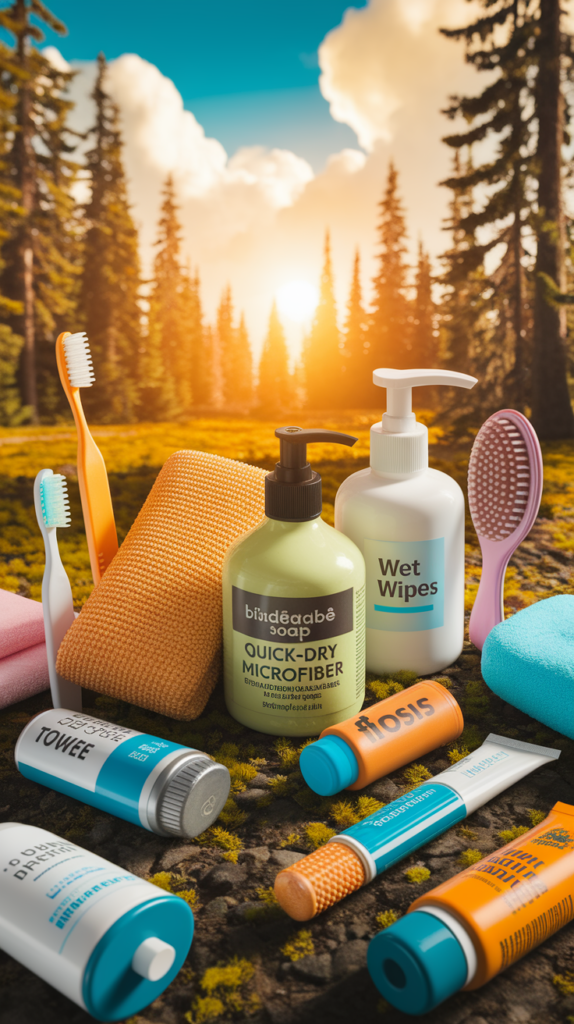
Maintaining hygiene while camping helps you stay fresh and healthy, even in the great outdoors. Start with a biodegradable soap and a quick-dry microfiber towel to clean up without harming the environment. Wet wipes and hand sanitizer are great for freshening up when water is scarce.
For oral care, pack a toothbrush, toothpaste, and floss. A compact brush or comb helps keep hair manageable, and deodorant is a must, preferably unscented to avoid attracting bugs. Sunscreen (SPF 30+), lip balm with SPF, and insect repellent keep your skin protected from sunburn and bites.
If there are no restroom facilities, bring toilet paper, a trowel for digging a cathole, and waste bags for responsible disposal. Women should pack feminine hygiene products or a menstrual cup, and everyone should have a small zippered bag for storing used hygiene items until proper disposal.
Staying clean while camping ensures a more comfortable and enjoyable experience!
What Not to Bring
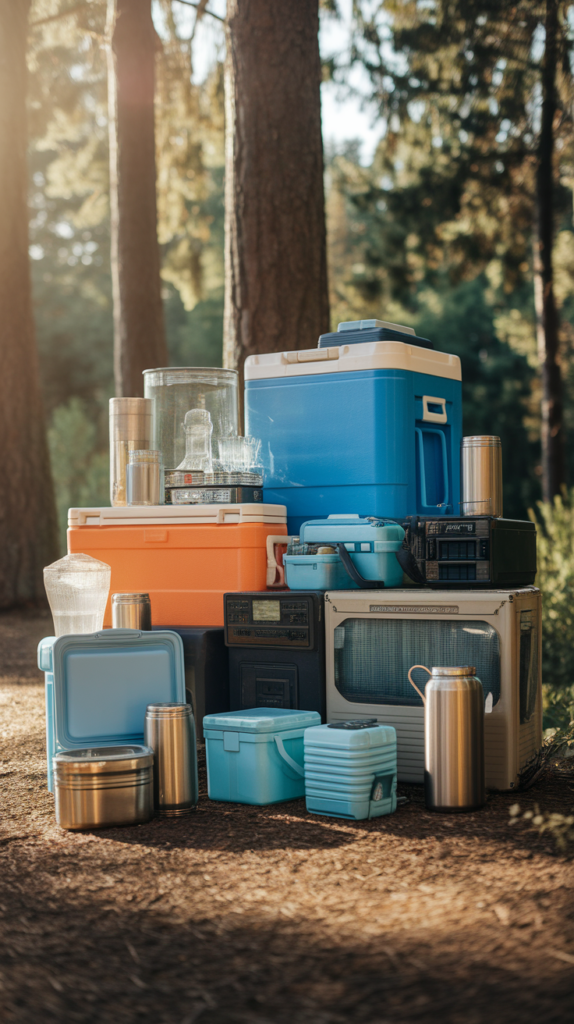
Packing light and smart ensures a hassle-free camping experience. Avoid heavy or bulky items like oversized coolers, unnecessary gadgets, or too many clothes—stick to multi-purpose gear to save space. Glass containers are fragile and can be hazardous; opt for reusable plastic or stainless steel alternatives.
Leave scented products like perfumes, lotions, and heavily fragranced deodorants at home, as they attract insects and wildlife. Single-use plastics create unnecessary waste—choose reusable water bottles, utensils, and food containers instead.
Avoid expensive electronics such as laptops and gaming devices, which are prone to damage and distract from the outdoor experience. Too many clothes are also unnecessary—stick to versatile, quick-drying layers.
Lastly, firewood from outside the campsite can introduce pests and diseases—buy local firewood instead. Packing efficiently ensures you have everything you need without excess weight, keeping your trip smooth and enjoyable.
Helpful Packing Tips
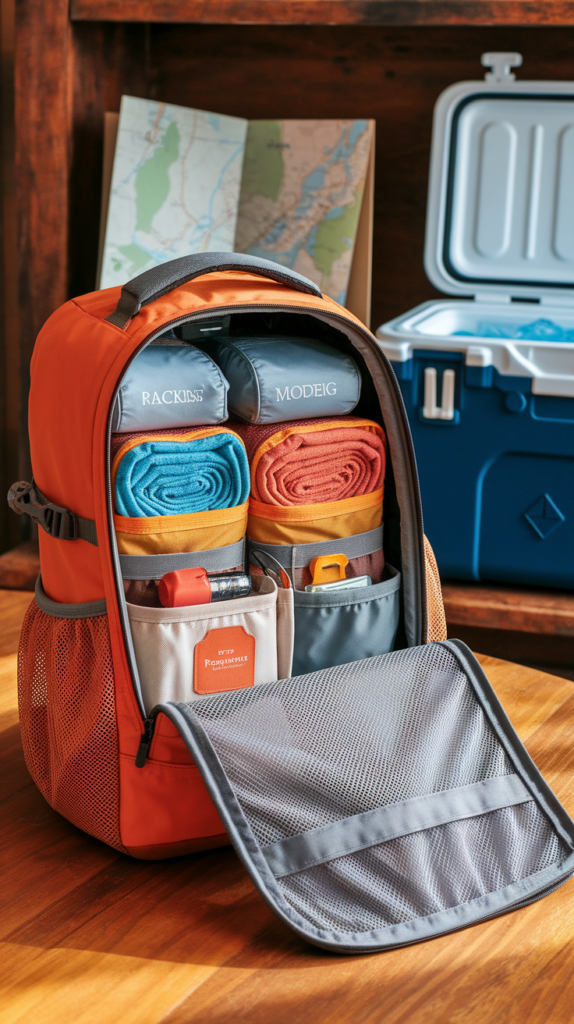
Packing smart can make your camping trip more efficient and enjoyable. Start by making a checklist to ensure you don’t forget any essentials. Use packing cubes or dry bags to organize clothing and keep items protected from moisture. Roll your clothes instead of folding to save space and prevent wrinkles.
For food, pre-portion ingredients and store them in reusable containers or zip-top bags to minimize waste. Label your meals to make cooking at camp easier. If bringing perishables, use a high-quality cooler with ice packs to keep food fresh.
Keep frequently used items like a flashlight, snacks, and first aid kit easily accessible. Store small essentials in Ziploc bags to protect them from rain or spills. Distribute weight evenly in your backpack to avoid strain.
Finally, always double-check the weather forecast before packing to adjust for temperature changes or unexpected rain. A little preparation goes a long way!
Fun & Extras (Optional but Worth It)
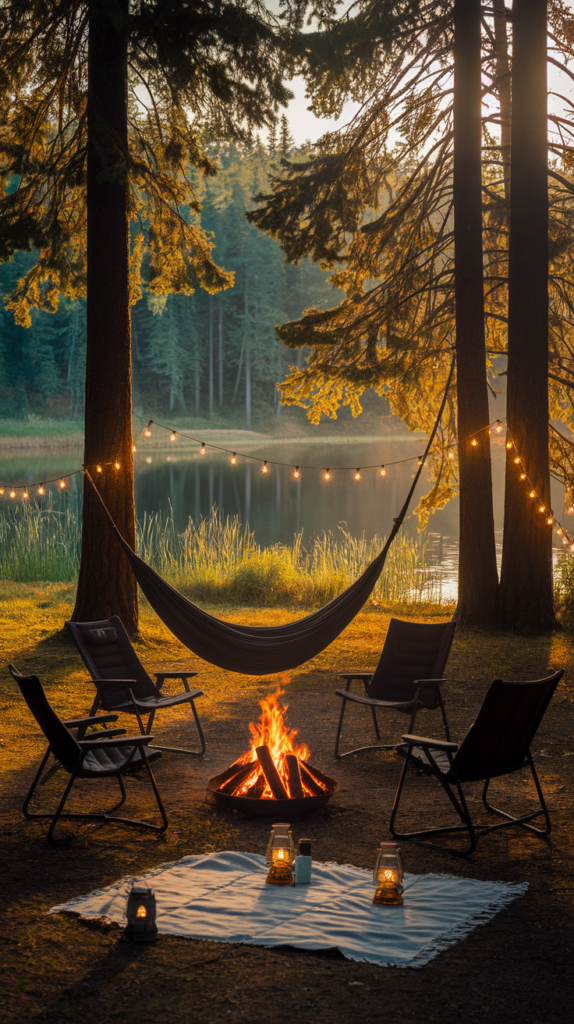
While essentials keep you prepared, bringing a few extras can make your camping experience even more enjoyable. A camping hammock is perfect for lounging, reading, or napping in the shade.
Portable camping chairs provide comfort around the fire, and a lightweight picnic blanket is great for stargazing. For entertainment, pack a deck of cards, travel-sized board games, or a book to unwind in the evenings.
A camera or binoculars enhances wildlife spotting and photography opportunities. If you’re near water, consider fishing gear, an inflatable kayak, or a snorkel set for added adventure.
Music lovers can bring a small, waterproof Bluetooth speaker (at a respectful volume), and for cozy evenings, string lights or solar lanterns create a warm ambiance. A field guide or journal lets you document your trip and nature observations.
These extras aren’t necessary but can elevate your camping experience and create lasting memories!
Wrapping Up
A successful summer camping trip starts with smart packing—bringing the essentials while avoiding unnecessary items. With the right gear, clothing, and food supplies, you’ll stay comfortable, safe, and prepared for any adventure.
Remember to pack light, dress appropriately, and follow hygiene and safety guidelines to make the most of your time outdoors. Whether you’re a seasoned camper or a first-timer, thoughtful preparation ensures a stress-free and enjoyable experience.
Now that you have the ultimate packing guide, it’s time to hit the trails, embrace the beauty of nature, and create unforgettable camping memories. Happy camping!
